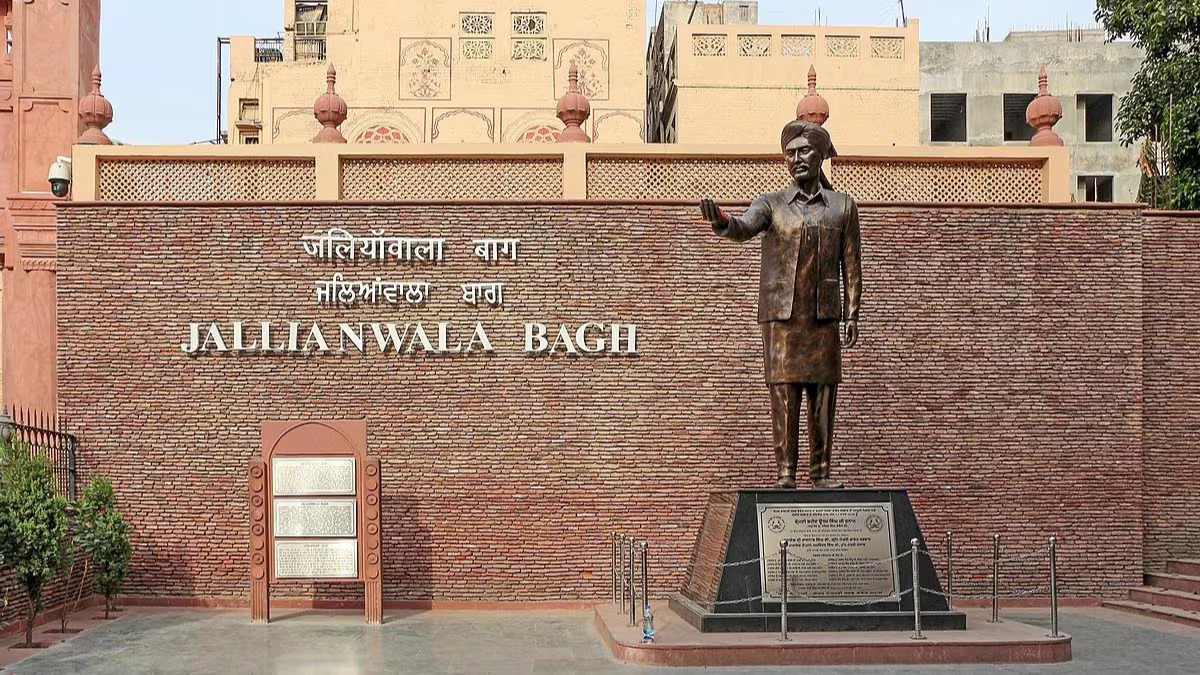Jallianwala Bagh Massacre: A Dark Chapter in India's History
History Indian HistoryPosted by NewAdmin on 2025-02-05 08:39:09 |
Share: Facebook | Twitter | Whatsapp | Linkedin Visits: 26

The Jallianwala Bagh Massacre was a tragic and brutal event that took place on April 13, 1919, in Amritsar, Punjab, during British rule in India. It occurred in the backdrop of growing unrest against the oppressive Rowlatt Act, which allowed the British government to arrest and detain individuals without trial. This act had led to widespread protests across India, with Punjab being one of the most affected regions. On the day of the massacre, a large gathering of men, women, and children had assembled in Jallianwala Bagh, a public garden surrounded by high walls with narrow exits, to peacefully protest against the government's policies and also to celebrate the Sikh festival of Baisakhi.
General Reginald Dyer, the acting military commander of Amritsar, viewed this gathering as a threat to British authority. Without any warning or an attempt to disperse the crowd peacefully, he ordered his troops to block the main entrance and open fire on the unarmed civilians. The soldiers continued to shoot for about ten minutes, targeting the densest sections of the crowd to maximize casualties. Many people were killed instantly, while others, in an attempt to escape, jumped into a well located within the garden. The firing only ceased when the troops ran out of ammunition, leaving behind a horrifying scene of death and suffering.
The massacre resulted in the deaths of hundreds of people, with unofficial estimates suggesting over a thousand fatalities and many more injured. The British government initially tried to justify Dyer’s actions, claiming he had restored order, but the incident sparked nationwide outrage. Indian leaders, including Mahatma Gandhi and Rabindranath Tagore, strongly condemned the massacre. Gandhi launched the Non-Cooperation Movement as a response, and Tagore renounced his knighthood in protest. The massacre played a crucial role in uniting Indians against British rule and intensified the demand for independence.
In later years, the British government acknowledged the incident as a tragic event, but no formal apology was issued. The Jallianwala Bagh Memorial now stands at the site to honor the victims and serves as a reminder of the sacrifices made during India’s struggle for freedom. The massacre remains one of the darkest chapters in Indian history, symbolizing the brutality of colonial rule and the resilience of the Indian people in their fight for independence.
Search
Categories
Recent News
- Indian Girls Fight Back: Empowering Self-Defence
- Nellore MP Pushes for Swift Development with Central Funds
- Hyderabad Police Close Muslim Martial Arts Camp
- Olympic Bidding Wars: A New Era of Transparency?
- Security Forces Eliminate Terrorists in Jammu and Kashmir
- Iranian Women Break Free: Motorcycles and More
- Neves' Long-Term Commitment: Al-Hilal Secures Their Star
- Unveiling the Secrets of Seduction: China's Controversial Flirtation School
Popular News
- Navigating IPO Market Dynamics Amid Volatility and Regulatory Changes
- Massive Worldwide Microsoft Outage Disrupts Multiple Sectors
- Panjapur Bus Stand to Reshape TNSTC Routes
- తెలుగుదేశం పార్టీ - పేదరికాన్ని నిర్మూలించడంలో వాగ్దానం
- Universities Embrace Remote Learning Technologies Amidst Ongoing Pandemic